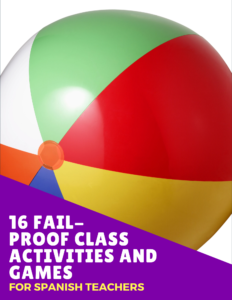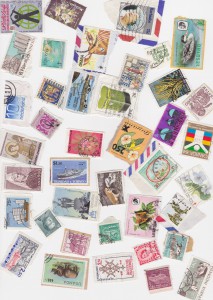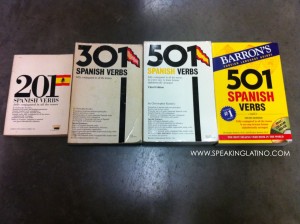Por favor, siéntese, and let the class begin. Today’s topic is conjunctions of the irregular verb sentarse. It has multiple forms in the Indicative, Subjunctive, and Imperative moods, and we will detail every one of them. Take your notebook and pen, and make sure to come up with your own examples for every tense we will […]
Sana Sana Colita de Rana: The Healing Chant Explained 🐸
Ever bumped your knee and heard the soothing words, “Sana Sana Colita de Rana”? This seemingly simple rhyme, meaning “Heal, heal, little frog’s tail,” holds a special place in the hearts of many Latino communities. It’s a little chant used for generations to offer comfort and reassurance to kids experiencing bumps, scrapes, and even the […]
Spanish Colors: Bilingual Guide to Colors in Spanish & English 🌈
Have you ever dreamt of painting the town red… in Spanish, that is? Well, mastering colors is a fantastic first step towards fluency, and this guide is here to be your colorful companion on that journey!Get ready to learn a rainbow of vocabulary and essential grammar tips and discover how to express your favorite Spanish […]
Saber Conjugation: Master Every Tense Guide 📘
Have you reached irregular verbs and can’t wrap your mind around saber conjunctions? We have compiled all saber conjunctions in one place for you with real-life examples to help you understand the usage of this word better. Sabemos mucho de gramática – and you will know it soon, too! Table of Contents When to Use SaberWhat […]
Word Comparison in Spanish: A Comprehensive Matrix Chart of Spanish Slang Words
It often happens that Spanish learners go to a Spanish-speaking country and realize that there are tons of words they are not familiar with, even though they refer to simple items or activities and even though they thought there was a different vocabulary for that. This is because there are numerous dialects of the Spanish […]
12 Popular Latin Music and Dance Styles
Latin music and dance styles have captivated audiences around the world with their infectious rhythms and vibrant movements. From the sultry sounds of salsa to the energetic beats of reggaeton, Latin music has a rich and diverse history that reflects the cultural fusion of the Americas. Explore 12 of the most popular Latin music and […]
Free Registration for the World Language Teachers Summit 2022
The free registration for the 2022 World Language Teacher Summit is happening now! With 12,000 participants last year, this was the largest online conference for world language teachers! We look forward to continuing to offer inspiring sessions to thousands of teachers with over 30 different presentations this year! This year’s summit will be focused on […]
3 Websites to Learn and Practice Spanish Without Spending a Penny
A tight budget doesn’t need to be your reason for not learning Spanish. Luckily, there are some great free tools available to help you practice and hone your skills. Whether it’s learning a few words every day with an app that uses spaced repetition, picking up new phrases from an online community, or mastering your […]
16 Fail-Proof Spanish Class Activities and Games
Speaking Latino followed up with 16 Spanish teacher experts that presented in the Spanish Teacher Success Academy online conference and asked them: What is your number one favorite activity you play in your classroom? They gave us awesome ideas that you can use any time in class. As an extra bonus, we have unlocked this […]
Spanish Worksheets for Kids
The younger the age, the easier it is for us to acquire a new language. It is definitely a good practice to send a child to Spanish classes as young as kindergarten age (or even younger!). However, teachers may find it hard to catch the attention of such small students, so using absorbing teaching aids […]
Possessive and Demonstrative Adjectives Spanish Class Activities
1. Lesson Plan – Possessive and Demonstrative Adjectives, Position of Adjectives [MEMBERS] – Students learn possessive adjectives by watching a video and by doing an oral practice that includes vocabulary related to the family. They do a written and oral practice of the forms for the demonstrative adjectives in singular and plural. Finally, they watch the […]
CABALLO vs CABALLERO: An Embarrassing Spanish Speaking Lesson
In Spanish, a lot of words may be altered slightly with diminutives or colloquialisms and still mean more or less the same thing, for example with “galleta” (cookie/cracker) and “galletita” (little cookie/cracker”). Chileans, in particular, are famous for their -itos. It is then understandable that one might confuse the words “caballo” and “caballero” and assume […]
4 Names in Spanish for SANTA CLAUS: Infographic
The legendary figure of Santa Claus is well recognized all over the world. The story around this character was inspired by the Christian Bishop Saint Nicholas from the 4th century that lived in Lycia (Turkey today). Legends said that he was recognized for his generosity as a secret gift-giver, putting coins in the shoes or […]
7 Must-Have Books for Spanish Learners
In bookstores, I just drool over the foreign language reference section (as my recent visit to Powell’s books proves). Any visit requires me to pass through the language learning materials, peruse and dream of my next language. Chinese, Arabic, Italian all interest me. As do Catalan, Basque, Korean, and several others. I plan on tackling […]
12 Popular English Songs in Spanish (Part 1)
There are many songs that become popular and then make a crossover to other languages. Some turn out to be good, but others are a complete disaster. I assume that translating a hit song to a different language is difficult. Think about the challenge of keeping the essence of the original lyrics yet finding the […]
CAGAR vs CARGAR: An Embarrassing Spanish Speaking Lesson
When you are learning a language, it is easy to brush off certain things as unimportant. You simply want to get your point across, so you can’t waste time trying to perfect every aspect of your speech when you need to communicate. Usually, this is fine and with enough context, you will be understood, more […]
A Slice of the Spanish Pie: 8 Spanish Language Words for SLICE
You would think a word as simple as slice would have only one translation. Unfortunately, that is not the case. The noun SLICE in Spanish has seemingly countless translations, each one is specific to whatever you are slicing. Here are a few of the more common translations: 1. Trozo Used for slices of cake or […]
A Funny Story About the Spanish Language Word BOMBA
Now, if you are looking at the word BOMBA in Spanish for the first time or even as someone who has studied Spanish for years, you are probably thinking it means “bomb”. Well, that is correct. Most of the time. I studied Spanish for several years before I headed to Mexico. I was pretty confident […]
Learn Spanish: 4 Ways to Say STRAIGHT AHEAD in Spanish
Straight ahead, go straight, forward. They all mean keep going in the same direction you are currently facing. What about recto, directo, de frente, p’alante, t’o tieso and derecho? Any guess as to their meaning? These are some Spanish synonyms for… You got it: Straight ahead. Good guess. Was it the title of the post […]
ESTAMPILLA or SELLO? Spanish Language Words for STAMP
STAMP. This simple word becomes complex when translated into Spanish. Spanish differences give us two possible words. Spanish Language Words for STAMP I remember learning estampilla in my early studies for STAMP. Only when I began to travel did I learn that another option exists. The other option I know of is sello. Generally estampilla […]
BOCA ABAJO: How to Translate This Spanish Phrase to English
This post is a follow-up to Is My Underwear Inside-Out or is it Backwards? and a direct result of conversations during and after I wrote that article. This started as a simple post. In discussing the first post above, it came out that boca abajo’s translation to English is unclear. So I began writing the […]
Language Learning: Spanish Phrases and Usages of the Word PALO
This also happens to be a mega blog post about Spanish differences. The word PALO includes many meanings and phrases tied to it. Check it out. PALO generically refers to a stick, like a broom stick, a pool stick or baseball bat-type stick. However, PALO may also refer to the soccer goal posts. Also, in […]
Should You Learn Spanish in Puerto Rico?
UPDATE: Read an opposite view to this blog post at Learn Spanish in Puerto Rico: Immersion Program ISLAShould you Study Spanish in Puerto Rico? When asked my opinion about studying Spanish in Puerto Rico I answer truthfully. “Do not study Spanish in Puerto Rico.” I often say this in Puerto Rico, surrounded by Puerto Ricans. […]
Comay, Yerna, Chozno & Other Spanish Words for Family Members and Relatives: Infographic
As you learn a language, one of the major tasks is vocabulary acquisition. The more words you know, the better you communicate. Occasionally, you run across words that are not translatable, but for the most part words in one language have an equivalent in another. In the process of acquiring more vocabulary you will notice […]
AL REVÉS: How to Translate This Spanish Phrase to English
So I’m getting dressed the other day. I slip on the undies and my wife says: Tienes los calzoncillos al revés. I immediately assumed they were backwards. Namely, that the label side was in the front and the normal front part of the underwear, in the back. And here’s where we ran into a language […]
Barron’s Spanish Verbs Book Through Time
Recently in Portland, Oregon on my honeymoon I stopped in at one of the world’s most entertaining places: Powell’s bookstore. For anyone that has never been it is a must-see before you kick the bucket. Me being me, I ran directly to the Red Room, second floor. That’s the language section. As any vain author […]
10 Funny Product Names from the Supermarket: My Fun Spanish Lesson in Central America
Here is a collection of product names in Spanish I found on a recent trip to the Western Caribbean. Throughout a 10-year career in Marketing, I experienced the importance of establishing a strong brand name. These products names are catchy and funny and now that I am more aware of the differences of Spanish languages […]
Learning Spanish Lessons: The Distinction Between PARECER and PARECERSE
Parecer and parecerse a both mean “to resemble” or “to look like” but they cannot be used interchangeably. Parecer is used to describe the appearance of something, such as “He looks like a teacher” while parecerse is used to compare between items, such as “He looks like my teacher Mr. Sanchez.” or to give an […]
My Wedding Day
Today’s theme is Wedding Day so I have a couple quick Speaking Latino basic Spanish words for wedding. The first is voto. I recently learned that this word has two meanings. Many of you probably know that it means vote as in “vote early” and “vote often,” or “I have to go vote today for […]
English to Spanish Translations: 3 Ways TO MOVE in Spanish
This post is part of the series Warming up for El Día E: Posts to Improve Your Spanish. El Día E is a world-wide celebration of the Spanish Language that will take place on June 23th, 2012. Posts in this series to celebrate El Día E: 1. Join the Celebration of El Día E 2. […]





























